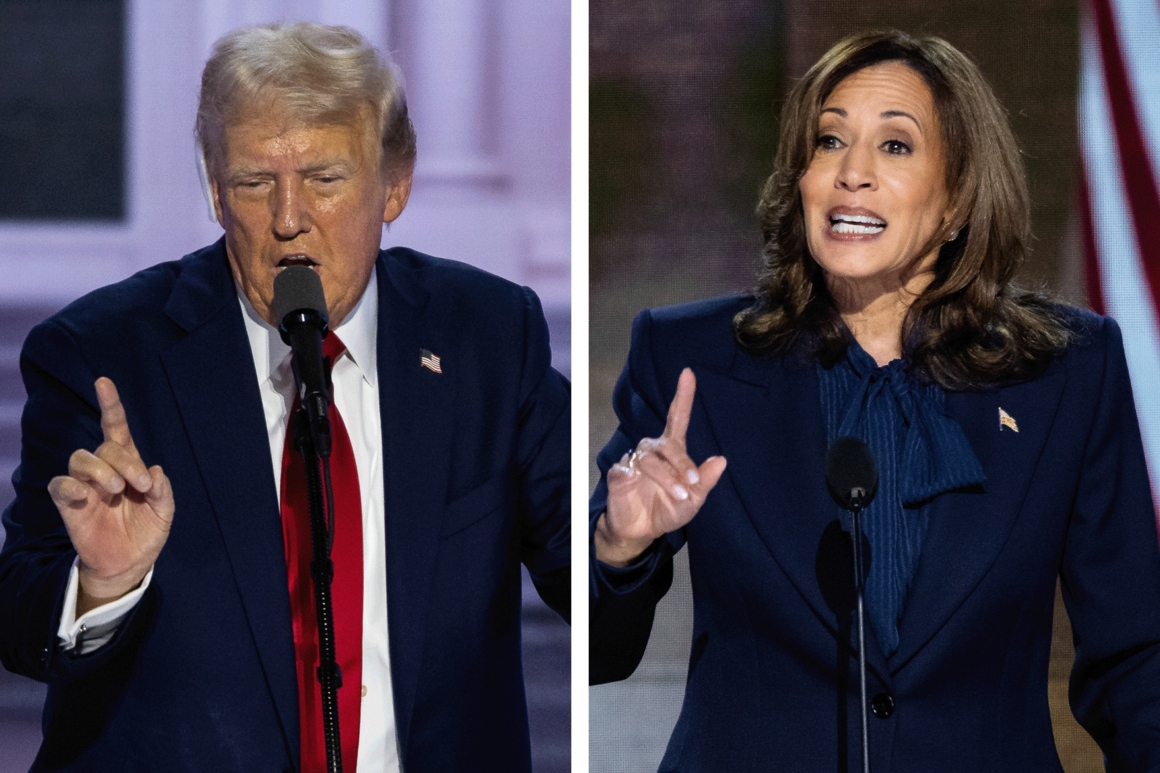In the realm of presidential debates, the upcoming confrontation between former President Donald Trump and Vice President Kamala Harris is anticipated to be a defining moment in the race leading up to the November 5 election. With only weeks remaining and polls showing a close contest, this televised event offers both candidates a pivotal opportunity to sway undecided voters.
Trump, known for his abrasive debate tactics, has already directed several personal attacks toward Harris, employing both racist and sexist remarks. He has made false claims about her identity, including questioning her Blackness and using derogatory language to describe her, reinforcing harmful stereotypes. While these strategies may resonate with certain portions of his base, they risk alienating key groups such as women and Black voters, potentially harming his broader appeal.
For Harris, the debate presents its own unique set of challenges. As the first Black and South Asian woman on a presidential ticket, her performance will be closely watched. She must strike a delicate balance, navigating Trump’s inflammatory rhetoric without appearing passive or engaging in personal attacks that could detract from her message. If she appears too restrained, she may be perceived as not standing up for herself. Conversely, if she responds too forcefully, she risks reinforcing negative stereotypes or being seen as overly combative.
Compounding these challenges is the fact that many voters are still forming their opinions about Harris. Unlike Trump, whose public persona is well-established, Harris is still relatively new to many in the electorate. This debate offers her a critical chance to introduce herself more fully and define her vision for the country.
In her past debates, Harris has shown an ability to handle personal attacks with poise. In the 2020 vice presidential debate, she memorably responded to Vice President Mike Pence’s interruptions with the composed remark, “Mr. Vice President, I’m speaking,” a moment that gained widespread attention. It is expected that she will employ a similar strategy with Trump, aiming to rise above his insults and focus on policy issues.
Political analysts suggest that Trump’s aggressive approach may not serve him well with moderate voters. John Geer, a political science professor at Vanderbilt University, notes, “His harsh rhetoric could push away crucial voter groups, including independents. Some Republican strategists maintain that Trump’s approach has been successful in rallying his core supporters, and the tight polling numbers suggest that it hasn’t diminished his backing.
Trump’s team has signaled that his debate focus will include attacking Harris on her record and policy positions. While his personal attacks may continue, he is expected to also highlight issues such as immigration and the economy. This strategy could provide Harris with an opportunity to counter by emphasizing her policy differences with Trump, particularly around issues where he may be vulnerable.
While Trump might aim to provoke Harris into a confrontational exchange, many experts believe she is unlikely to take the bait. According to Kelly Dittmar, a political analyst from Rutgers University, Harris faces a delicate balancing act. Directly addressing Trump’s racist or sexist remarks could result in accusations of her playing the ‘race’ or ‘gender card,’ but completely ignoring them might make her appear passive.
Harris’ best approach may be to maintain focus on policy and avoid being drawn into Trump’s personal attacks. Some analysts, such as Andra Gillespie from Emory University, argue that Trump’s most outrageous remarks may not even require a response. “Some of his comments are so outlandish that they discredit themselves,” Gillespie explains.
As millions of viewers tune in, this debate will be a critical moment in the election, potentially shaping the final weeks of the campaign. Both Trump and Harris have much at stake, and their performances could significantly influence the outcome of this closely contested race.

